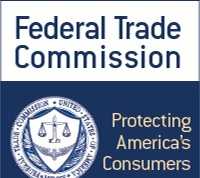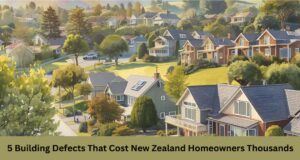Planning and action grants to kick start revitalization in distressed neighborhoods
WASHINGTON – June 29, 2016 – (RealEstateRama) — U.S. Housing and Urban Development (HUD) Secretary Julián Castro today awarded $8 million to 10 severely distressed neighborhoods to stimulate affordable housing and economic development. Funded through HUD’s Choice Neighborhoods Initiative, these awards will help local leaders to craft comprehensive, homegrown plans to revitalize and transform these neighborhoods.
Part of the Obama Administration’s effort to build Ladders of Opportunity to the middle class, HUD’sChoice Neighborhoods Initiativepromotes a comprehensive approach to transforming neighborhoods struggling to address the interconnected challenges of distressed housing, inadequate schools, poor health, high crime, and lack of capital. HUD is awarding Choice Neighborhood Planning grants to the following communities:
|
Grantee |
Co-Grantee |
Target Neighborhood |
Planning Grant |
||
| Asbury Park Housing Authority | City of Asbury Park, New Jersey | West Side |
$500,000 |
||
| Housing Authority of the City of Brownsville | City of Brownsville, Texas | Buena Vida |
$500,000 |
||
| Greater Dayton Premier Management | City of Dayton, Ohio | DeSoto Bass |
$1,500,000 |
||
| Louisville Metro Housing Authority | City of Louisville, Kentucky | Russell |
$1,000,000 |
||
| Metropolitan Development and Housing Authority (Nashville, TN) | Martha O’Bryan Center | Napier/Sudekum |
$500,000 |
||
| City of Newport News, Virginia | Newport News Redevelopment and Housing Authority | Marshall/Ridley |
$500,000 |
||
| City of Phoenix, Arizona | Edison-Eastlake |
$1,500,000 |
|||
| Housing Authority of the City of Pittsburgh | City of Pittsburgh, Pennsylvania | Bedford Dwellings/Hill District |
$500,000 |
||
| Sanford Housing Authority | City of Sanford, Florida | Goldsboro |
$500,000 |
||
| City of Shreveport, Louisiana | Housing Authority of the City of Shreveport | Allendale/Ledbetter Heights/West Edge |
$1,000,000 |
||
|
TOTAL |
$8,000,000 |
||||
“No child should be limited in life by the zip code where they were born,” said Castro. “Today, we’re kick starting the revitalization in 10 distressed neighborhoods across the country. These grants will lay a firm foundation upon which we’ll build better, more thoughtful neighborhoods that are more connected to all the opportunities their communities have to offer.”
Choice Neighborhoods is HUD’s signature place-based initiative and its vision builds on the work that has been done by the Neighborhood Revitalization Initiative, an interagency partnership between HUD, the Department of Education, the Department of Health and Human Services, the Department of Justice, and Treasury, since 2009. Choice Neighborhoods is focused on three core goals:
- Housing: Replace distressed public and assisted housing with high-quality mixed-income housing that is well-managed and responsive to the needs of the surrounding neighborhood.
- People: Improve educational outcomes and intergenerational mobility for youth with services and supports delivered directly to youth and their families.
- Neighborhood: Create the conditions necessary for public and private reinvestment in distressed neighborhoods to offer the kinds of amenities and assets, including safety, good schools, and commercial activity, that are important to families’ choices about their community.
Until now, Choice Neighborhoods Planning Grant funds could only be used to create a neighborhood Transformation Plan. However, experience with the 63 previously awarded Choice Neighborhoods Planning Grantees has shown that tangible, early actions help sustain community energy, attract new resources, and build momentum to turn that plan into reality.
HUD’s FY15/16 Choice Neighborhoods Planning Grant funds build upon these lessons by introducing Planning and Action Grants. Greater Dayton Premier Management, Louisville Metro Housing Authority, the City of Phoenix, and the City of Shreveport will each receive additional funding for action activities. With this additional funding, communities with severely distressed public or HUD-assisted housing will continue to develop a successful neighborhood transformation plan and build the support necessary for that plan to be successfully implemented. In addition, Planning and Action Grant funds will also enable activities including:
- Reclaiming and recycling vacant property into community gardens, pocket parks, farmers’ markets, or land banking;
- Beautification, place making, and community arts projects;
- Homeowner and business façade improvement programs;
- Neighborhood broadband/Wi-Fi;
- Fresh food initiatives; and
- Gap financing for economic development projects.
Through the Choice Neighborhoods planning process local governments, housing authorities, residents, nonprofits, tribal authorities, private developers, school districts, police departments, and other civic organizations create a common vision and develop effective strategies to revitalize their neighborhood. The resulting Transformation Plan and locally driven Action Activities lay the foundation for revitalizing the distressed public and/or assisted housing units, transforming the surrounding neighborhood, and promoting opportunities for families.
###
HUD’s mission is to create strong, sustainable, inclusive communities and quality affordable homes for all.
More information about HUD and its programs is available on the Internet
at www.hud.gov and http://espanol.hud.gov.
You can also connect with HUD on social media and follow Secretary Castro on
Twitter and Facebook or sign up for news alerts on HUD’s Email List.
Shantae Goodloe
(202) 708-0685
http://www.hud.gov/news/index.cfm














